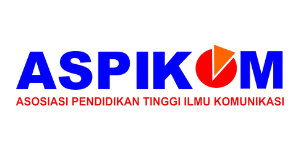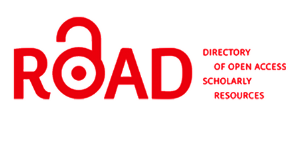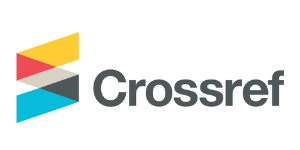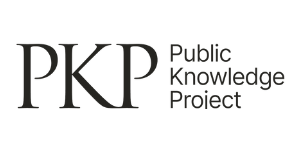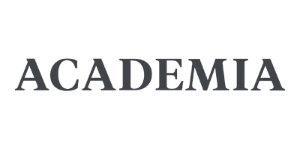Social Media's Democratic Footprint
A Review of Political Participation Trends
DOI:
https://doi.org/10.37535/105004220255Keywords:
Social Media, Politic Participation, Digital EraAbstract
This literature review examines social media's role in increasing public political engagement in the digital era, synthesizing 17 scientific sources from the last five years. Digital transformation has reshaped political participation, fostering faster, more open, and decentralized interactions. The study explores five key themes: the theoretical basis of political participation, mechanisms for increasing engagement through social media (e.g., shaping public opinion via digital platforms and phenomena like "Emergency Warning"), digital mobilization strategies of political figures (illustrated by the "Anies Bubble" discourse and its use of symbols and narratives), the impact of information technology on political communication and elite-public interaction, and the challenges and opportunities of digital democracy, including disinformation, polarization, and digital literacy gaps. Findings indicate social media's strategic role in promoting broader political participation. However, realizing its full potential necessitates robust digital literacy, adaptive regulations, and responsible platform governance to enhance the quality of digital democracy.
References
Achu, K., Al Jubah, K., Brodtkorb, S., Chervin, P., Coleridge, P., Davies, M., Deepak, S., Eklindh, K., Goerdt, A., Greer, C., Heinicke-Motsch, K., Hooper, D., Ilagan, V. B., Jessup, N., Khasnabis, C., Mulligan, D., Murray, B., Officer, A., Ortali, F., & Ransom, B. (2010). Community-based rehabilitation: CBR guidelines. WHO Press. https://www.ncbi.nlm.nih.gov/books/NBK310940/
Alper, D. Ö. (2024). Public relations discourse on X (Twitter) and analysis of public relations. Journal of Communication & Public Relations, 3(1), 14-26. https://doi.org/10.37535/105003120242
Arifin, G., Virgayani, V., Asriyani, A., Muja'hidah, M., & Jubair, J. (2025). Enhancing the role of political parties in advancing political education as a foundation for democracy. Fiat Justisia: Jurnal Ilmu Hukum, 19(1), 73-92. https://doi.org/10.25041/fiatjustisia.v19no1.4026
Armayani, RR, Tambunan, LC, Siregar, RM, Lubis, NR, & Azahra, A. (2021). Analysis of the Role of Instagram Social Media in Increasing Online Sales. Tembusai Journal of Education: Faculty of Education, Pahlawan University, 5(3), 8920–8928. https://jptam.org/index.php/jptam/article/view/2400
Arniti, NK (2020). Public Political Participation in the Legislative Elections in Denpasar City. Scientific Journal of Social Dynamics, 4(2), 329. https://doi.org/10.38043/jids.v4i2.2496
Arumsari, N., Septina, WE, & Saputro, IH (2020). The Role of Social Media in Increasing First-Time Voter Participation Among Students of the Faculty of Social Sciences, Semarang State University. Harmony: Journal of Social Studies and Civics Learning, 5(1), 12–16. https://doi.org/10.15294/harmony.v5i1.40271
Chang, C., & Wu, C. (2022). Active vs. passive ambivalent voters: Implications for interactive political communication and participation. Communication Research, 50(7), 828-853. https://doi.org/10.1177/00936502211066001
Cobis, M. Y., & Cangara, H. (2023). Social Media as A Political Space in The Digital Age. PERSPEKTIF, 12(3). https://doi.org/10.31289/perspektif.v12i3.9114
Fitriani, D., Budiyani, Y., Hardika, AR, & Mita Choerunissa. (2023). Public Participation in the Democratic Process in Indonesia: An Analysis of the Role of Technology and Social Media. ADVANCES in Social Humanities Research, 1(4), 362–371. https://adshr.org/index.php/vo/article/view/43
Harahap, I. H. (2020). Kampanye Pilpres 2019 melalui Media Sosial dan Pengaruhnya terhadap Demokrasi Indonesia. Komunikologi : Jurnal Ilmiah Ilmu Komunikasi, 17(1), 1-11. https://www.researchgate.net/publication/340584071_Kampanye_Pilpres_2019_Melalui_Media_Sosial_Dan_Pengaruhnya_Terhadap_Demokrasi_Indonesia
Herari, N., Assegaff, S. B., Utomo, A. G., & Friscillia, A. P. (2024). Using SEM model for fighting diabetes: Strategic communication plan in Jakarta city, Indonesia. Jurnal Komunikasi: Malaysian Journal of Communication, 40(4), 539-560. https://doi.org/10.17576/jkmjc-2024-4004-30
Ida, R., Mashud, M., Saud, M., Yousaf, F. N., & Ashfaq, A. (2025). Politics in Indonesia: democracy, social networks and youth political participation. Cogent Social Sciences, 11(1). https://doi.org/10.1080/23311886.2024.2432071
Jiang, J., Ren, X., & Ferrara, E. (2021). Social Media Polarization and Echo Chambers in the Context of COVID-19: Case Study. JMIRx Med, 2(3), e29570. https://doi.org/10.2196/29570
Juleha, J., Yuniar, J., & Marsuki, N. R. (2024). Peran media Sosial Dalam Dinamika Opini Publik Dan Partisipasi Politik era digital. Concept: Journal of Social Humanities and Education, 3(1), 38-45. https://doi.org/10.55606/concept.v3i1.951
Maharani, N. A. (2024). Social Media as A Primary Source of Information: Exploring its Role in Disseminating the Current Situation in Palestine. Gema Wiralodra, 15(1), 275-281. https://doi.org/10.31943/gw.v15i1.628
Manik Pratiwi, A. A. (2020). Peran media Sosial dalam Meningkatkan Penjualan Online Saat Pandemi COVID-19. Jurnal Ilmiah Satyagraha, 3(2), 73-81. https://doi.org/10.47532/jis.v3i2.179
Miconi, A. (2022). The Network and The Society: Structure and Agency in Castells’ Theory. American Behavioral Scientist, 67(7), 847-858. https://doi.org/10.1177/00027642221092805
Naeem, M., Ozuem, W., Howell, K., & Ranfagni, S. (2023). A Step-by-Step Process of Thematic Analysis to Develop a Conceptual Model in Qualitative Research. International Journal of Qualitative Methods, 22. https://doi.org/10.1177/16094069231205789 (Original work published 2023)
Nurdin, R. (2024). Trolls, Disinformation, and Campaign Strategy: Challenges of Digital Democracy in the 2024 Election. Indonesian Election Governance Journal, 6(1), 1–26.
Oceani, D. N. (2023, September 25). How Democratic Are We in Indonesia? Infid. https://infid.org/en/how-democratic-are-we-in-indonesia/
Rahmawati, A., Astuti, D. M., Harun, F. H., & Rofiq, M. K. (2023). Peran Media Sosial dalam Penguatan Moderasi Beragama di Kalangan Gen-Z. J-ABDI: Jurnal Pengabdian kepada Masyarakat, 3(5), 905-920. https://doi.org/10.53625/jabdi.v3i5.6495
Rusi, M., Ujiantuti, E., & Nahar, L. (2020). Strategi Pemerintah Indonesia dalam Membentuk Opini Publik Terkait Pemberlakuan PSBB. Jurnal Syntax Transformation, 1(9), 632-640. https://doi.org/10.46799/jst.v1i9.129
Sa'ban, L. A., Sadat, A., & Nastia. (2019). Partisipasi Politik Masyarakat dalam Pemilihan Kepala Daerah Kota Baubau Tahun 2018. JIP (Jurnal Ilmu Pemerintahan) : Kajian Ilmu Pemerintahan dan Politik Daerah, 4(1), 29-38. https://doi.org/10.24905/jip.4.1.2019.29-38
Salim, K. (2020). Digital Politics and Participation Politics in Society in the Era of Industrial Revolution. Indonesian Journal of Digital Society, 1(1), 31-38. http://journal.unas.ac.id/sosiologi-ijds
Sarjito, A. (2024). Hoaks, Disinformasi, dan Ketahanan Nasional: Ancaman Teknologi Informasi dalam Masyarakat Digital Indonesia. Journal of Governance and Local Politics (JGLP), 6(2), 175-186. https://journal.unpacti.ac.id/index.php/JGLP/article/download/1547/871
Susanto, E. H. (2017). Media Sosial sebagai Pendukung Jaringan Komunikasi Politik. Jurnal ASPIKOM, 3(3), 379. https://doi.org/10.24329/aspikom.v3i3.123
Sutoyo, M. A. H., & Rahayu, P. (2022). Evaluasi Usability Aplikasi EDMODO dengan SUS dan Thematic Analysis. Jurnal Sistem Informasi Bisnis, 11(2), 146-151. https://doi.org/10.21456/vol11iss2pp146-151
Tan, J. J., Firdaus, A., & Aksar, I. A. (2024). Social media for political information: A systematic literature review. Jurnal Komunikasi: Malaysian Journal of Communication, 40(1), 77-98. https://doi.org/10.17576/jkmjc-2024-4001-05
Yam, J. H. (2024). Kajian Penelitian: Tinjauan Literatur Sebagai Metode Penelitian. Jurnal Empire, 4(1), 61-71. https://www.researchgate.net/publication/380638533_JURNAL_EMPIRE_Kajian_Penelitian_Tinjauan_Literatur_Sebagai_Metode_Penelitian
Yendra, M., & Bond, J. (2022). Transparent, accountable and integrity governance of public bodies in West Sumatra through increasing the role and function of the regional information commission. Journal of Law, Politic and Humanities, 2(4), 198-205. https://doi.org/10.38035/jlph.v2i4.156


